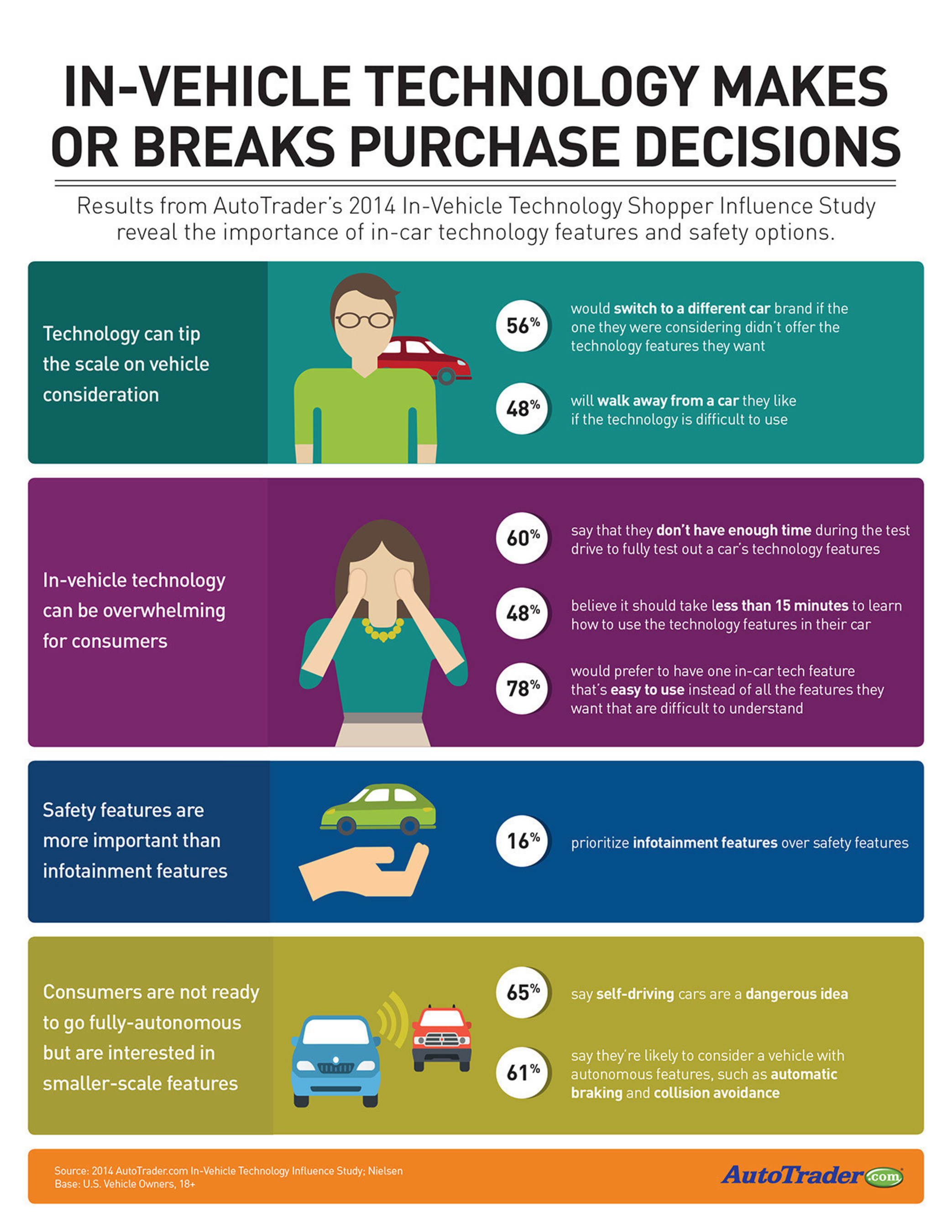
Self-driving cars ‘a dangerous idea,’ say 65% of American drivers surveyed
November 17, 2014 by Canadian Underwriter
Print this page Share
Nearly two-thirds of drivers surveyed believe self-driving cars “are a dangerous idea,” while 61% are “likely to consider” safety features — such as parking assist and collision avoidance systems — on their next vehicle purchase, AutoTrader.com reported Monday.

Atlanta-based Autotrader.com, which lists vehicles for sale, released the findings of its 2014 In-Vehicle Technology Shopper Influence Study. The study is based on an online survey, conducted in October by Harris Interactive Inc., of 1,033 American vehicle owners.
“The vast majority of vehicle owners prioritize safety features over infotainment (84 percent), with things like blind spot detection and back-up cameras/sensors rising to the top of the list,” Autotrader.com stated in a release. “And while vehicle owners remain leery of fully autonomous vehicles (65 percent of vehicle owners think self-driving cars are a dangerous idea), six in ten (61 percent) are likely to consider a model with autonomous safety features like park assist and collision avoidance on their next purchase.”
One third (33%) of respondents said they would “trust a self-driving vehicle,” while 29% “say the way they drive has changed because of new safety features,” Autotrader.com stated. “If they had to choose, 84% of vehicle owners say it’s most important to have a vehicle with all their desired safety features such as a backup camera than a vehicle that has all of their desired information and entertainment features.”
More than a third (38%) of respondents “would like more time in the vehicle during a test drive to get an education on a vehicle’s technology and safety features, and nearly three in ten would like to take the vehicle home overnight to test the features out on their own,” Autotrader.com reported.
“Results were weighted as needed for age by gender, education, race/ethnicity, region and household income,” Autotrader.com stated of the survey. “Propensity score weighting was also used to adjust for respondents’ propensity to be online. No estimates of theoretical sampling error can be calculated.”

Have your say: